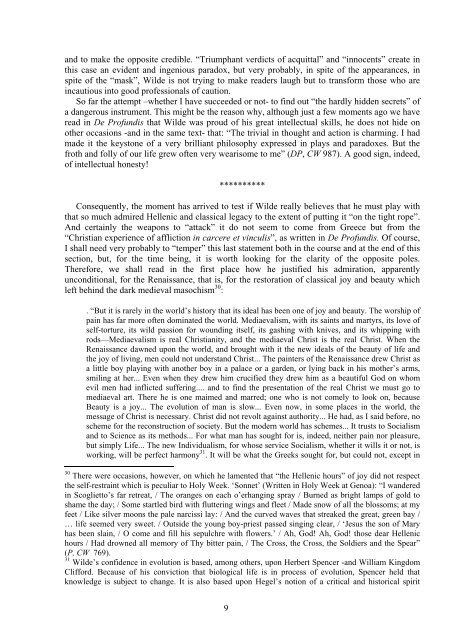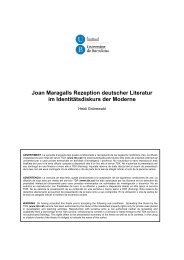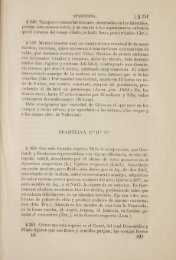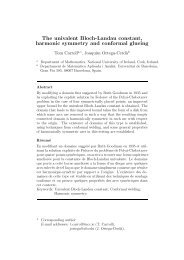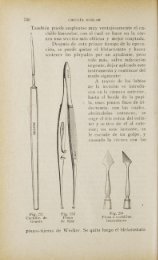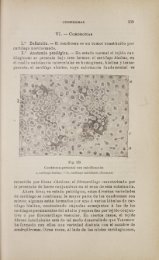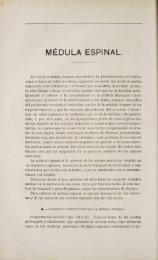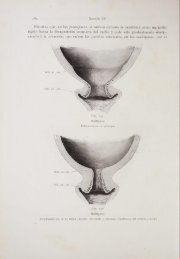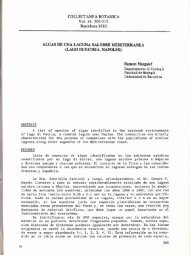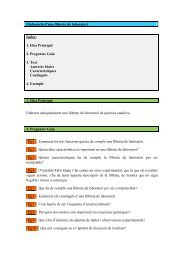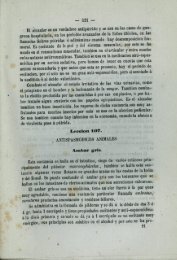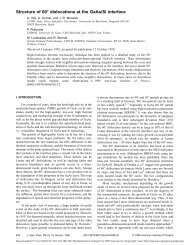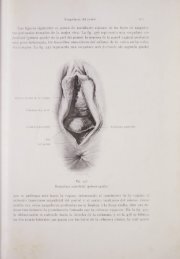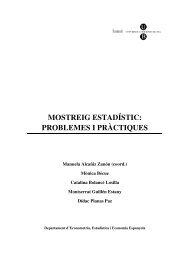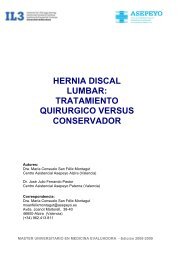Wilde Parsa ang_12080.pdf - Dipòsit Digital de la UB - Universitat ...
Wilde Parsa ang_12080.pdf - Dipòsit Digital de la UB - Universitat ...
Wilde Parsa ang_12080.pdf - Dipòsit Digital de la UB - Universitat ...
Create successful ePaper yourself
Turn your PDF publications into a flip-book with our unique Google optimized e-Paper software.
and to make the opposite credible. “Triumphant verdicts of acquittal” and “innocents” create in<br />
this case an evi<strong>de</strong>nt and ingenious paradox, but very probably, in spite of the appearances, in<br />
spite of the “mask”, <strong>Wil<strong>de</strong></strong> is not trying to make rea<strong>de</strong>rs <strong>la</strong>ugh but to transform those who are<br />
incautious into good professionals of caution.<br />
So far the attempt –whether I have succee<strong>de</strong>d or not- to find out “the hardly hid<strong>de</strong>n secrets” of<br />
a d<strong>ang</strong>erous instrument. This might be the reason why, although just a few moments ago we have<br />
read in De Profundis that <strong>Wil<strong>de</strong></strong> was proud of his great intellectual skills, he does not hi<strong>de</strong> on<br />
other occasions -and in the same text- that: “The trivial in thought and action is charming. I had<br />
ma<strong>de</strong> it the keystone of a very brilliant philosophy expressed in p<strong>la</strong>ys and paradoxes. But the<br />
froth and folly of our life grew often very wearisome to me” (DP, CW 987). A good sign, in<strong>de</strong>ed,<br />
of intellectual honesty!<br />
**********<br />
Consequently, the moment has arrived to test if <strong>Wil<strong>de</strong></strong> really believes that he must p<strong>la</strong>y with<br />
that so much admired Hellenic and c<strong>la</strong>ssical legacy to the extent of putting it “on the tight rope”.<br />
And certainly the weapons to “attack” it do not seem to come from Greece but from the<br />
“Christian experience of affliction in carcere et vinculis”, as written in De Profundis. Of course,<br />
I shall need very probably to “temper” this <strong>la</strong>st statement both in the course and at the end of this<br />
section, but, for the time being, it is worth looking for the c<strong>la</strong>rity of the opposite poles.<br />
Therefore, we shall read in the first p<strong>la</strong>ce how he justified his admiration, apparently<br />
unconditional, for the Renaissance, that is, for the restoration of c<strong>la</strong>ssical joy and beauty which<br />
left behind the dark medieval masochism 30 :<br />
. “But it is rarely in the world’s history that its i<strong>de</strong>al has been one of joy and beauty. The worship of<br />
pain has far more often dominated the world. Mediaevalism, with its saints and martyrs, its love of<br />
self-torture, its wild passion for wounding itself, its gashing with knives, and its whipping with<br />
rods—Mediaevalism is real Christianity, and the mediaeval Christ is the real Christ. When the<br />
Renaissance dawned upon the world, and brought with it the new i<strong>de</strong>als of the beauty of life and<br />
the joy of living, men could not un<strong>de</strong>rstand Christ... The painters of the Renaissance drew Christ as<br />
a little boy p<strong>la</strong>ying with another boy in a pa<strong>la</strong>ce or a gar<strong>de</strong>n, or lying back in his mother’s arms,<br />
smiling at her... Even when they drew him crucified they drew him as a beautiful God on whom<br />
evil men had inflicted suffering.... and to find the presentation of the real Christ we must go to<br />
mediaeval art. There he is one maimed and marred; one who is not comely to look on, because<br />
Beauty is a joy... The evolution of man is slow... Even now, in some p<strong>la</strong>ces in the world, the<br />
message of Christ is necessary. Christ did not revolt against authority... He had, as I said before, no<br />
scheme for the reconstruction of society. But the mo<strong>de</strong>rn world has schemes... It trusts to Socialism<br />
and to Science as its methods... For what man has sought for is, in<strong>de</strong>ed, neither pain nor pleasure,<br />
but simply Life... The new Individualism, for whose service Socialism, whether it wills it or not, is<br />
working, will be perfect harmony 31 . It will be what the Greeks sought for, but could not, except in<br />
30 There were occasions, however, on which he <strong>la</strong>mented that “the Hellenic hours” of joy did not respect<br />
the self-restraint which is peculiar to Holy Week. ‘Sonnet’ (Written in Holy Week at Genoa): “I wan<strong>de</strong>red<br />
in Scoglietto’s far retreat, / The or<strong>ang</strong>es on each o’erh<strong>ang</strong>ing spray / Burned as bright <strong>la</strong>mps of gold to<br />
shame the day; / Some startled bird with fluttering wings and fleet / Ma<strong>de</strong> snow of all the blossoms; at my<br />
feet / Like silver moons the pale narcissi <strong>la</strong>y: / And the curved waves that streaked the great, green bay /<br />
… life seemed very sweet. / Outsi<strong>de</strong> the young boy-priest passed singing clear, / ‘Jesus the son of Mary<br />
has been s<strong>la</strong>in, / O come and fill his sepulchre with flowers.’ / Ah, God! Ah, God! those <strong>de</strong>ar Hellenic<br />
hours / Had drowned all memory of Thy bitter pain, / The Cross, the Cross, the Soldiers and the Spear”<br />
(P, CW 769).<br />
31 <strong>Wil<strong>de</strong></strong>’s confi<strong>de</strong>nce in evolution is based, among others, upon Herbert Spencer -and William Kingdom<br />
Clifford. Because of his conviction that biological life is in process of evolution, Spencer held that<br />
knowledge is subject to ch<strong>ang</strong>e. It is also based upon Hegel’s notion of a critical and historical spirit<br />
9


